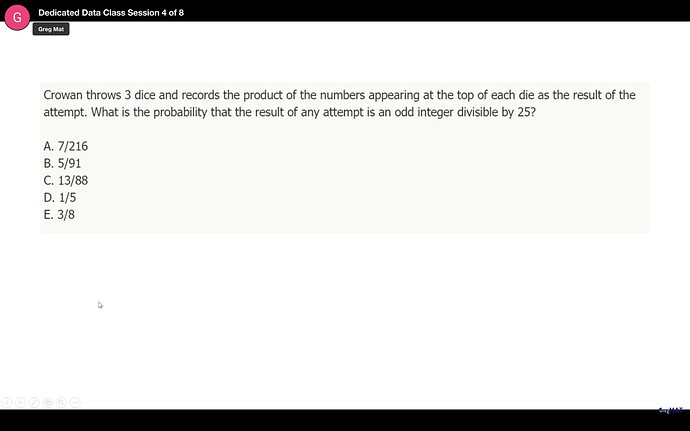Screenshot is from dedicated data session 4. I’m scoring 160+ on Quant consistently, but I’m horrible at setting up probability/combo problems.
When I try to solve this, I set it up like this vvvvvv I’m writing the following realizing that parts are incorrect.
(3 instances) –– –– ––
(3 cases that work) 5 / 5 / 1, 3, 5
5 / 1, 3, 5 / 5
1, 3, 5 / 5 / 5
Each line has odds of 1/6 * 1/6 * 1/2 = 1/72
Therefore the three cases equal 3/72 or 1/24
Where have I gone wrong?!
